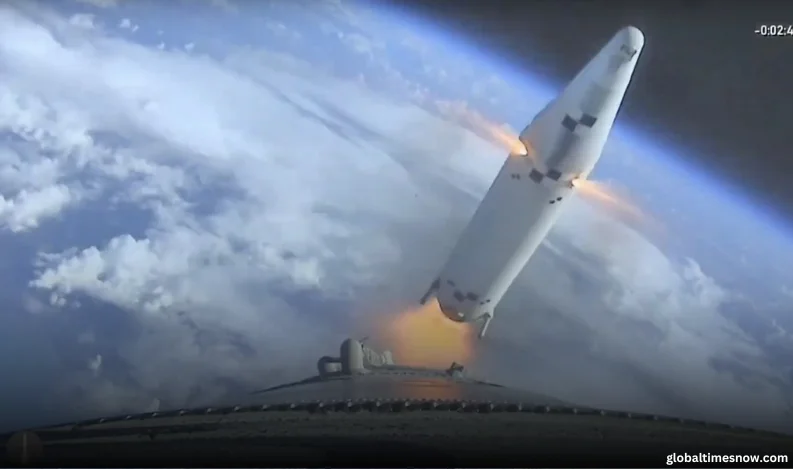Europe's highly anticipated Ariane 6 rocket launch was abruptly called off just minutes before its scheduled liftoff on Monday due to an "anomaly" on the ground. The postponement marks yet another delay for the European Space Agency’s (ESA) new heavy-lift rocket, designed to secure the continent’s independent access to space.
Unexpected Halt Before Launch
The Ariane 6 rocket was set to launch from Europe's spaceport in Kourou, French Guiana, at 1:24 PM local time (1624 GMT). Despite favorable weather conditions and an initial green light from mission control, an unexpected ground issue led to a last-minute halt.
David Cavailloles, head of the French aerospace company Arianespace, confirmed the decision.
"The only possible decision now is to postpone the launch," Cavailloles said, while expressing confidence that another flight would be scheduled soon.
Strategic Setback for European Space Autonomy
The delay comes at a critical time for Europe, which has been striving to reduce its reliance on U.S. space technology, especially as geopolitical tensions shift. The planned mission aimed to deploy CSO-3, a French military satellite, into orbit at an altitude of approximately 800 kilometers (500 miles) above Earth.
Since Russia’s 2022 invasion of Ukraine, Europe has lost access to Russian Soyuz rockets, while its workhorse Ariane 5 was retired in 2023. The continent has struggled to maintain an independent launch capability, lagging behind competitors such as Elon Musk’s SpaceX.
Security and Geopolitical Implications
The mission carried added significance following the unexpected policy shift by newly elected U.S. President Donald Trump, who initiated a surprising diplomatic thaw with Moscow. European leaders have emphasized the necessity of self-reliance in space technology.
"Europe must ensure its own security," said ESA space transportation director Toni Tolker-Nielsen.
"We must be united," echoed Cavailloles, highlighting the importance of maintaining independent satellite launch capabilities.
French Research Minister Philippe Baptiste reinforced this stance, stating that Europe’s "strategic autonomy" in space technology is now more critical than ever.
Challenges in European Space Programs
Ariane 6’s repeated delays have compounded challenges for Europe’s space industry. The mission was initially scheduled for December 2024 before being postponed to February 26, and then again to March 3. A new launch date has not yet been announced.
The European space sector has also faced setbacks due to the grounding of the smaller Vega-C launcher. Following an accident that resulted in the loss of two satellites, Vega-C was out of service for nearly two years, only resuming flights in December 2024. This left Europe without a reliable satellite launch system for an extended period.
Military and Security Considerations
The CSO-3 satellite, part of a French military imaging network, will complete a trio of satellites launched in 2018 and 2020. These satellites provide high-resolution imagery using both visible and infrared light, enhancing military operations worldwide.
Given the mission’s military significance, strict security measures were enforced at the Kourou spaceport. French fighter jets patrolled the airspace around the launch site to prevent any security breaches.
Despite Europe’s ambitions, its space capabilities remain modest compared to the United States and China, both of which operate extensive networks of military satellites. The latest Ariane 6 delay underscores the challenges Europe faces in achieving greater autonomy in space.
Looking Ahead
While European officials remain optimistic, the repeated delays raise concerns about the continent’s ability to compete in the rapidly evolving space industry. With SpaceX increasing its dominance and China advancing its space programs, Europe's independent access to space remains uncertain.
A new launch date for Ariane 6 is expected to be announced in the coming weeks.























